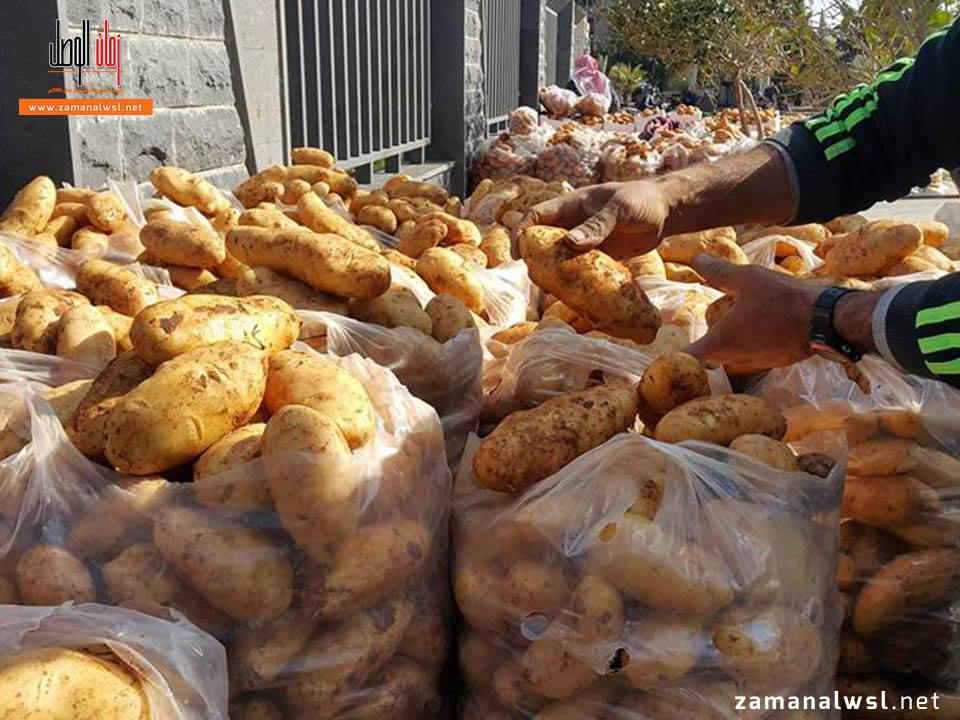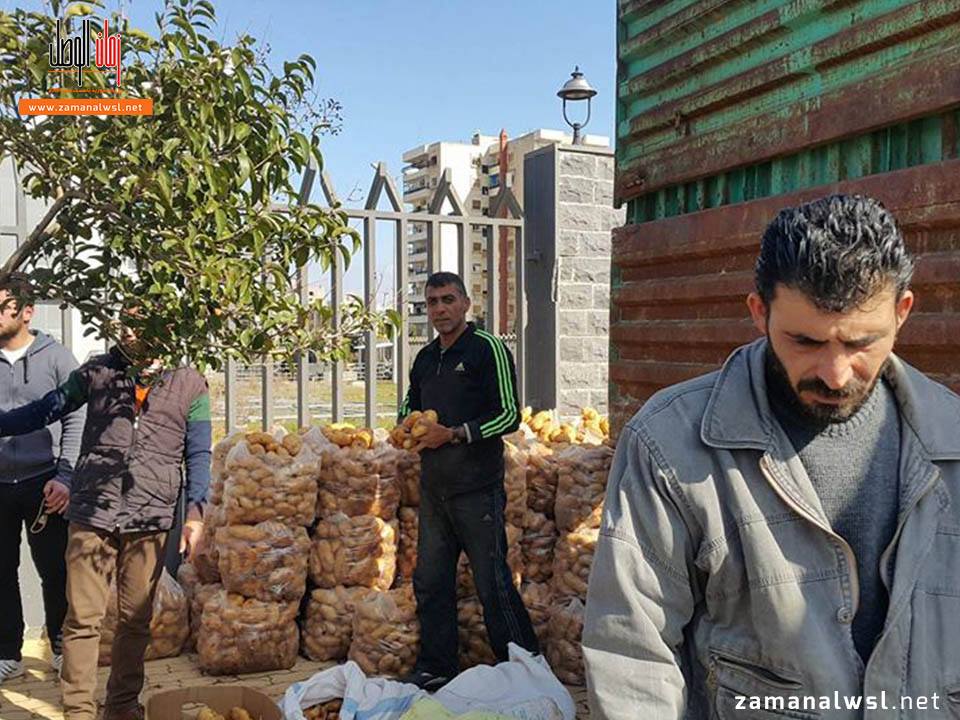(Zaman Al Wasl)- People of al-Waer neighborhood in the central Homs city celebrated Friday their first wholesale vegetable market after three years of shelling and siege as regime allowed a daily 12 tons of vegetables to entering the district in binding to a U.N.-mediated deal.
Al-Waer's Souq al-Hal, where tens of street vendors and farmers sell vegetables and fruit in the wholesale price, has revived again, residents said, hoping the whole daily life can came back slowly.
People's breakthrough came last December when 300 fighters together with 400 members of their families, left al-Waer, the last rebel-held area of Homs as part of a rare local ceasefire deal negotiated between the opposition and the government.
The fighters and their families were being moved to rebel-held areas of the northwest near the Turkish border.
The U.N.-brokered ceasefire stated that food, fuel and many siege restrictions must be lifted.

In the meantime, al-Waer's negotiations committee said regime is trying escape their demand to release 7350 detainees.
"No release expected in the foreseeable future," source told Zaman al-Wasl.
Few days ago people of al-Waer went to street demanding their relative freedom. Regime said their fate will be known in 15 days in new procrastination round, according to the source.

The bitter happiness of Souq al-Hal has accompanied with the risk of hunger and deaths for 120,000 people in the northern countryside of Homs as regime forces and allied forces cut supply routes since mid-January, causing a risk of hunger and deaths , the United Nations said Thursday.
"There are reports of increasingly acute shortages of food, basic commodities, medical items and fuel in the area. With the irregular supply routes used until mid-January now cut off, food items that are still available are now being sold at much higher prices," said the report by the U.N. humanitarian office.
The area has been targeted by airstrikes and shelling since the end of October. There has been no electricity since then, and no pumped drinking water in Rastan and Talbiseh.
The Syrian Centre for Policy Research (SCPR) said at least 400,000 people have been killed since revolution erupted in March 2011.
Al-Waer's Souq al-Hal, where tens of street vendors and farmers sell vegetables and fruit in the wholesale price, has revived again, residents said, hoping the whole daily life can came back slowly.
People's breakthrough came last December when 300 fighters together with 400 members of their families, left al-Waer, the last rebel-held area of Homs as part of a rare local ceasefire deal negotiated between the opposition and the government.
The fighters and their families were being moved to rebel-held areas of the northwest near the Turkish border.
The U.N.-brokered ceasefire stated that food, fuel and many siege restrictions must be lifted.

In the meantime, al-Waer's negotiations committee said regime is trying escape their demand to release 7350 detainees.
"No release expected in the foreseeable future," source told Zaman al-Wasl.
Few days ago people of al-Waer went to street demanding their relative freedom. Regime said their fate will be known in 15 days in new procrastination round, according to the source.

The bitter happiness of Souq al-Hal has accompanied with the risk of hunger and deaths for 120,000 people in the northern countryside of Homs as regime forces and allied forces cut supply routes since mid-January, causing a risk of hunger and deaths , the United Nations said Thursday.
"There are reports of increasingly acute shortages of food, basic commodities, medical items and fuel in the area. With the irregular supply routes used until mid-January now cut off, food items that are still available are now being sold at much higher prices," said the report by the U.N. humanitarian office.
The area has been targeted by airstrikes and shelling since the end of October. There has been no electricity since then, and no pumped drinking water in Rastan and Talbiseh.
The Syrian Centre for Policy Research (SCPR) said at least 400,000 people have been killed since revolution erupted in March 2011.
















Comments About This Article
Please fill the fields below.